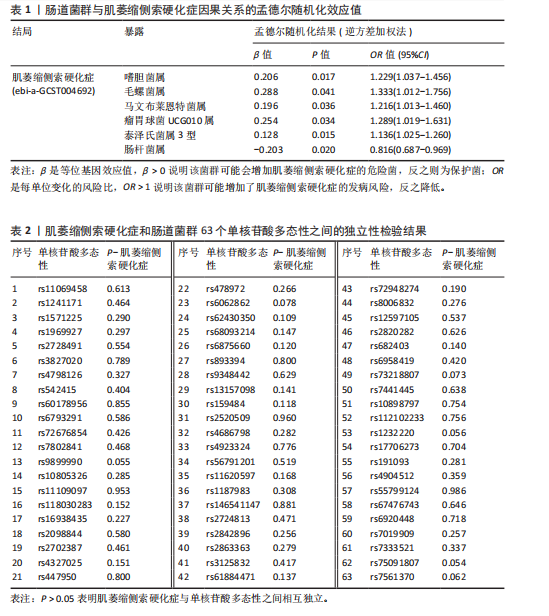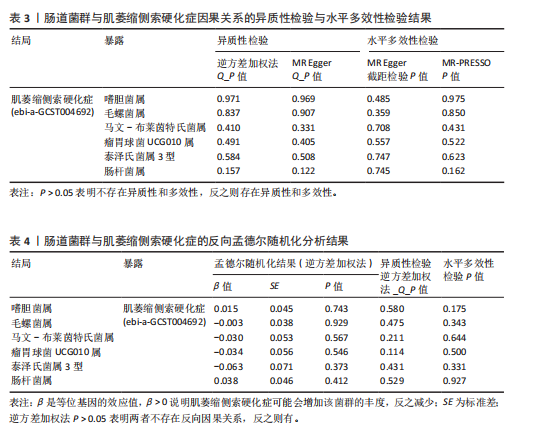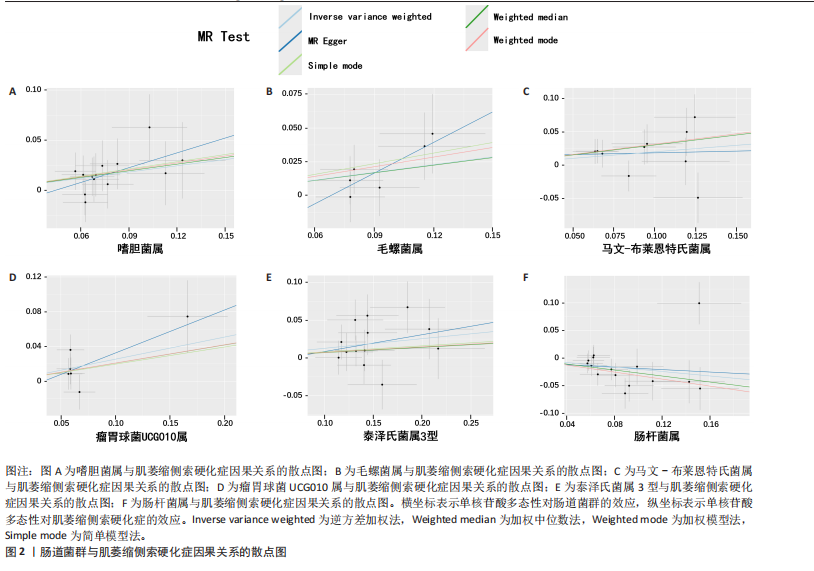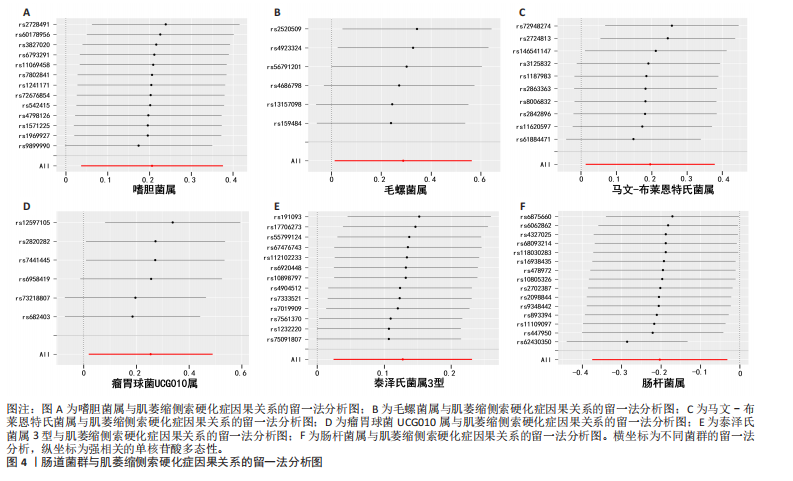[1] NGUYEN L. Updates on Disease Mechanisms and Therapeutics for Amyotrophic Lateral Sclerosis. Cells. 2024;13(11):888.
[2] MEJZINI R, FLYNN LL, PITOUT IL, et al. ALS Genetics, Mechanisms, and Therapeutics: Where Are We Now? Front Neurosci. 2019; 13:1310.
[3] RIZEA RE, CORLATESCU AD, COSTIN HP, et al. Understanding Amyotrophic Lateral Sclerosis: Pathophysiology, Diagnosis, and Therapeutic Advances. Int J Mol Sci. 2024; 25(18):9966.
[4] FONTANA A, MARIN B, LUNA J, et al. Time-trend evolution and determinants of sex ratio in Amyotrophic Lateral Sclerosis: a dose-response meta-analysis. J Neurol. 2021;268(8):2973-2984.
[5] RIVA N, DOMI T, POZZI L, et al. Update on recent advances in amyotrophic lateral sclerosis. J Neurol. 2024;271(7):4693-4723.
[6] KIERNAN MC, KAJI R. Emerging concepts and therapies for amyotrophic lateral sclerosis. Curr Opin Neurol. 2024;37(5): 558-559.
[7] FABI JP. The connection between gut microbiota and its metabolites with neurodegenerative diseases in humans. Metab Brain Dis. 2024;39(5):967-984.
[8] NAKHAL MM, YASSIN LK, ALYAQOUBI R, et al. The Microbiota-Gut-Brain Axis and Neurological Disorders: A Comprehensive Review. Life (Basel). 2024;14(10):1234.
[9] LIU X, LIU Y, LIU J, et al. Correlation between the gut microbiome and neurodegenerative diseases: a review of metagenomics evidence. Neural Regen Res. 2024;19(4):833-845.
[10] KAUL M, MUKHERJEE D, WEINER H L, et al. Gut microbiota immune cross-talk in amyotrophic lateral sclerosis. Neurotherapeutics. 2024;21(6):e00469.
[11] SARESELLA M, PIANCONE F, TORTORELLA P, et al. T helper-17 activation dominates the immunologic milieu of both amyotrophic lateral sclerosis and progressive multiple sclerosis. Clin Immunol. 2013;148(1):79-88.
[12] VAN DER VELDEN L, VAN HOOFT JA, CHAMEAU P. Altered dendritic complexity affects firing properties of cortical layer 2/3 pyramidal neurons in mice lacking the 5-HT3A receptor. J Neurophysiol. 2012; 108(5):1521-1528.
[13] YEUNG S LA, LUO S, IWAGAMI M, et al. Introduction to Mendelian randomization. Ann Clin Epidemiol. 2025;7(1):27-37.
[14] SKRIVANKOVA VW, RICHMOND RC, WOOLF BAR, et al. Strengthening the reporting of observational studies in epidemiology using mendelian randomization: the STROBE-MR statement. JAMA. 2021;326(16):1614-1621.
[15] KURILSHIKOV A, MEDINA-GOMEZ C, BACIGALUPE R, et al. Large-scale association analyses identify host factors influencing human gut microbiome composition. Nat Genet. 2021;53(2):156-165.
[16] VAN RHEENEN W, SHATUNOV A, DEKKER AM, et al. Genome-wide association analyses identify new risk variants and the genetic architecture of amyotrophic lateral sclerosis. Nat Genet. 2016;48(9):1043-1048.
[17] BURGESS S, DAVIES NM, THOMPSON SG. Bias due to participant overlap in two-sample mendelian randomization. Genet. Epidemiol. 2016;40(7):597-608.
[18] SANDERSON E, GLYMOUR MM, HOLMES MV, et al. Mendelian randomization. Nat Rev Methods Primer. 2022;2:6.
[19] LI P, WANG H, GUO L, et al. Association between gut microbiota and preeclampsia-eclampsia: a two-sample mendelian randomization study. BMC Med. 2022; 20(1):443.
[20] 汪涛,王顺谱,闵友江,等.肠道菌群与类风湿关节炎的因果关系:GWAS数据欧洲群体资料分析[J].中国组织工程研究,2025,29(35):7663-7668.
[21] PALMER TM, LAWLOR DA, HARBORD RM, et al. Using multiple genetic variants as instrumental variables for modifiable risk factors. Stat Methods Med Res. 2012; 21(3):223-242.
[22] YUAN S, CHEN J, RUAN X, et al. Smoking, alcohol consumption, and 24 gastrointestinal diseases: mendelian randomization analysis. eLife. 2023;12: e84051.
[23] LI J, BAI H, QIAO H, et al. Causal effects of COVID-19 on cancer risk: a mendelian randomization study. J Med Virol. 2023; 95(4):e28722.
[24] BOWDEN J, DAVEY SMITH G, HAYCOCK PC, et al. Consistent estimation in mendelian randomization with some invalid instruments using a weighted median estimator. Genet Epidemiol. 2016; 40(4):304-314.
[25] WACHSMUTH HR, WENINGER SN, DUCA FA. Role of the gut-brain axis in energy and glucose metabolism. Exp Mol Med. 2022;54(4):377-392.
[26] CALVO AC, VALLEDOR-MARTÍN I, MORENO-MARTÍNEZ L, et al. Lessons to Learn from the Gut Microbiota: A Focus on Amyotrophic Lateral Sclerosis. Genes. 2022;13(5):865.
[27] BLACHER E, BASHIARDES S, SHAPIRO H, et al. Potential roles of gut microbiome and metabolites in modulating ALS in mice. Nature. 2019;572(7770):474-480.
[28] ZHANG YG, WU S, YI J, et al. Target Intestinal Microbiota to Alleviate Disease Progression in Amyotrophic Lateral Sclerosis. Clin Ther. 2017;39(2):322-336.
[29] GOTKINE M, KVIATCOVSKY D, ELINAV E. Amyotrophic lateral sclerosis and intestinal microbiota-toward establishing cause and effect. Gut Microbes. 2020;11(6):1833-1841.
[30] BROWN GC. The endotoxin hypothesis of neurodegeneration. J Neuroinflammation. 2019;16(1):180.
[31] ROTHHAMMER V, MASCANFRONI ID, BUNSE L, et al. Type I interferons and microbial metabolites of tryptophan modulate astrocyte activity and central nervous system inflammation via the aryl hydrocarbon receptor. Nat Med. 2016; 22(6):586-597.
[32] MARTIN-GALLAUSIAUX C, MARINELLI L, BLOTTIÈRE H M, et al. SCFA: mechanisms and functional importance in the gut. Proc Nutr Soc. 2021;80(1):37-49.
[33] BODDY SL, GIOVANNELLI I, SASSANI M, et al. The gut microbiome: a key player in the complexity of amyotrophic lateral sclerosis (ALS). BMC Med. 2021;19(1) 13.
[34] KUNDU P, BLACHER E, ELINAV E, et al. Our Gut Microbiome: The Evolving Inner Self. Cell. 2017;171(7):1481-1493.
[35] NING J, HUANG SY, CHEN SD, et al. Investigating casual associations among gut microbiota, metabolites, and neurodegenerative diseases: a mendelian randomization study. J Alzheimers Dis. 2022; 87(1):211-222.
[36] FANG X, WANG X, YANG S, et al. Evaluation of the microbial diversity in amyotrophic lateral sclerosis using high-throughput sequencing. Front Microbiol. 2016;7:1479.
[37] PRIBAC M, MOTATAIANU A, ANDONE S, et al. Bridging the gap: harnessing plant bioactive molecules to target gut microbiome dysfunctions in amyotrophic lateral sclerosis. Curr Issues Mol Biol. 2024; 46(5):4471-4488.
[38] ÖZAYDIN AKSUN Z, ERDOĞAN S, KALKANCI A, et al. Is gut microbiota of patients with ALS different from that of healthy individuals? Turk J Med Sci. 2024;54(3): 579-587.
[39] TAKEWAKI D, KIGUCHI Y, MASUOKA H, et al. Tyzzerella nexilis strains enriched in mobile genetic elements are involved in progressive multiple sclerosis. Cell Rep. 2025;44(1):115228.
[40] ZHANG L, ZHUANG Z, ZHANG G, et al. Assessment of bidirectional relationships between 98 genera of the human gut microbiota and amyotrophic lateral sclerosis: a 2-sample Mendelian randomization study. BMC Neurol. 2022; 22(1):8.
[41] MAZZINI L, MOGNA L, DE MARCHI F, et al. Potential Role of Gut Microbiota in ALS Pathogenesis and Possible Novel Therapeutic Strategies. J Clin Gastroenterol. 2018;52 Suppl 1, Proceedings from the 9th Probiotics, Prebiotics and New Foods, Nutraceuticals and Botanicals for Nutrition&Human and Microbiota Health Meeting, held in Rome, Italy from September 10 to 12, 2017:S68-S70.
|




